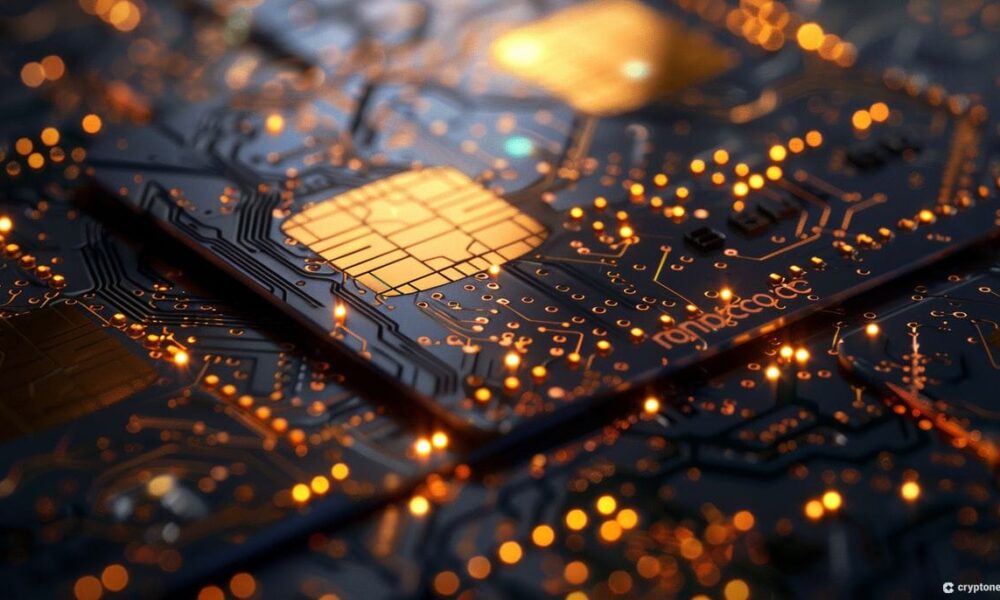Blockchain
Mastercard’s initial journey welcomes five startups that will develop blockchain use cases

Last updated: May 16, 2024 4:06 pm EDT | 2 minute read

Mastercard announced Wednesday the selection of five startups to participate in its Start Path blockchain and digital assets program to foster innovation in blockchain technology and the use of digital assets.
In the context of Mastercard’s new initiativethese startups will explore new ways to use money to address real-world challenges, improve user experiences, and broaden the utility of blockchain technology.
Mastercard emphasizes expertise in global payments
Mastercard highlighted its expertise in building a global payments network, highlighting its ability to connect regulated money, bank deposits, stablecoins and central bank digital currencies (CBDCs) with startups. The objective of the program is to promote the development of new solutions that improve the user experience in digital commerce.
Mastercard’s Start Path program will utilize the unique capabilities of blockchain technology by collaborating with industry experts and fintech startups to identify and develop use cases that address pressing social needs.
Through the Start Path program, selected startups will have access to special training, mentorship and Mastercard’s network of customers and channels for four months.
“Since the program was created in 2014, Mastercard has supported more than 400 startups from 54 countries,” the press release reads.
#MastercardProgramm | We are proud to announce our participation in the @MasterCard Start Path program for Blockchain and Digital Assets startups. 🌎⛓ pic.twitter.com/oMAFWTQUUf
— Parfin (@parfin_io) May 15, 2024
Among the selected startups is Kulipa, a France-based company that facilitates the issuance of crypto payment cards for digital wallets. Another chosen participant is UK-based Parfin, which focuses on developing enterprise-grade software products to assist financial institutions in adopting blockchain.
Among the startups chosen for the program was Singapore’s Peaq, recognized for providing permissionless, borderless digital infrastructure for real-world applications.
Also selected to participate were Triangle, a US-based startup that prioritizes sustainability through a data platform that integrates climate data with finance, and Venly, a Belgium-based startup that simplifies blockchain integration for developers and companies.
I’m thrilled to announce that Venly has been chosen to participate @MasterCard‘s Global Startup Path 2024 Blockchain and Digital Assets Program! 🎉
Being recognized as a leader in blockchain innovation is an honor. We look forward to helping shape the future of commerce through… pic.twitter.com/bp9Z1Nps8x
— Venly (@Venly_io) May 15, 2024
Commenting on the program, Kulipa founder Axel Cateland expressed optimism about unlocking the mass adoption of cryptocurrencies and promoting broader financial inclusion through convenient global stablecoin payments.
Successful live testing of Mastercard’s multi-token network
In a recent announcement, Mastercard and Standard Chartered Bank Hong Kong (SCBHK) have completed the first live test of Mastercard’s Multi-Token Network (MTN). The proof-of-concept pilot project involved the tokenization of carbon credits within the Hong Kong Monetary Authority’s (HKMA) Fintech Supervisory Sandbox, presenting a new blockchain application in financial services.
In the pilot, a customer of SCBHK’s virtual bank, Mox Bank, started the process by depositing funds into Mox and requesting a carbon credit.
Subsequently, Mox directed SCBHK to tokenize the carbon credit through Libeara, a tokenization service provider developed by Standard Chartered’s venture arm, SC Ventures. The MTN tokenized the deposit and an atomic swap, a real-time swap that happens across different blockchains, was performed to exchange the tokens.
Mastercard launched MTN in June 2023 using its private blockchain infrastructure. Previous MTN test runs are included collaborations with the Reserve Bank of Australia using the central bank digital currency (CBDC) and the HKMA’s e-HKD CBDC.
Although these CBDCs are not active yetthe trials demonstrated the potential of these technologies in modernizing financial transactions.
